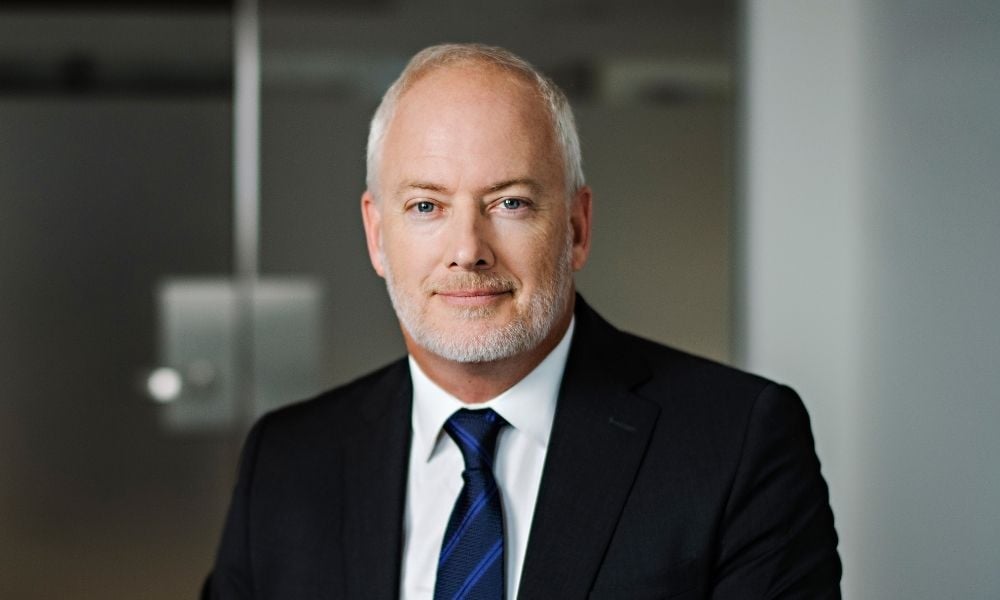Property and casualty company unable to mimic route taken by Canada's major life insurers

Definity Financial Corp opened on the Toronto Stock Exchange with the largest IPO of 2021, raising $1.4 billion on Nov. 23. Definity, the new parent company of Economical Insurance, was born through demutualization, a decade-long process which required a new regulatory framework to complete.
Demutualization is the legal transformation of a mutual insurance company, which has voting policyholders rather than shareholders, into a stock company with shareholders and no voting policyholders, says Innes Dey, senior VP of legal and strategy at Definity. Economical Insurance was the first property and casualty insurer to demutualize in Canada, he says.
“In practical terms the process of demutualizing has been anything but straightforward,” says Dey. “This was an extremely complex process that took a decade to complete.”
When the company decided to demutualize a decade ago, they were without a legal framework to follow. The “prevailing thought” was that existing demutualization rules could be adapted for P&C insurers, says Dey. Canadian life insurance companies, such as Canada Life, Manulife, Sun Life and Clarica, had used these rules to demutualize in the 1990s. But the difference in products and market structure between life insurance and P&C led the federal government to decide a new framework would be necessary, he says.
Economical’s legal team worked with the Federal Minister of Finance on the new rules. The government’s objectives were to promote “the fair and equitable treatment of policy-holders,” to ensure “an orderly and transparent process” and to set the stage so that a demutualizing company “would have reasonable a prospect of emerging successfully from the process,” says Dey.
In its 2014 omnibus budget, Bill C-31, the Conservative government amended the Insurance Companies Act to make way for regulations that allowed federally regulated P&C insurers to demutualize. At the time, the opposition Liberals and NDP raised concerns that demutualization would reduce competition and access to services, lead to market consolidation and alienate rural communities, in which most mutual insurers are based, reported Canadian Underwriter.
The government produced two sets of demutualization regulations, which applied to the two types of mutual P&C companies: those having only mutual policyholders and those having non-mutual policyholders. The regulations created a system of procedural safeguards and regulatory requirements which were designed with a view to “transparency, policyholder participation and professional and regulatory oversight,” says Dey.
“The regulatory process that was developed was distinctively unprecedented in its complexity. It included numerous gates, and failure at any point would mean a termination of the process,” he says. “These gates included three separate policyholder votes, court proceedings, a time-bound committee negotiation process, and regulatory and Ministerial approvals.”
The initial draft of the regulations leaned too heavily in favour of policyholders receiving financial benefits, at the expense of the company’s broader interests and other stakeholders, says Dey. Economical “strenuously advocated” that policymakers take greater account of the “broad prudential obligations” held by the board of directors to promote a converting company’s long-term health, he says. The government amended the regulations in that vein.
The next phase involved divvying up the financial benefits of demutualization to eligible stakeholders. Negotiations were held between two policyholder committees and supported by teams of experts. This process was out of Economical’s hands, and the company could not guarantee the committees would agree, says Dey.
“It was a critically important, high-risk phase of the process that had to be completed within one year or the entire demutualization process would end in failure.”
Economical was ultimately successful and the product of the negotiations became part of a formal conversion plan. Then, the plan required review and endorsement from the regulator, the Office of the Superintendent of Financial Institutions, as well as the approval of eligible policyholders at two special meetings.
“We had been pursuing demutualization to earn the chance to compete on an equal footing with our major competitors as a strong, independent public company,” says Dey. “The capital flexibility we now enjoy as a public company allows us to accelerate our innovation to better serve customers, invest in strategic growth initiatives, and participate in a consolidating marketplace.”
Along with the IPO, Definity also closed private placements with Healthcare of Ontario Pension Plan (HOOPP) and Swiss Re Investments Holding Company, which raised $700 million. With an over-allotment option, HOOPP also purchased another $200 million in shares. HOOPP now owns 19.9 per cent of Definity shares and Swiss Re owns 9.9 per cent. In total, the IPO and private placements brought in $2.3 billion.
“We are also extremely proud of Definity Insurance Foundation – a newly established charitable foundation seeded with $100 million of proceeds from our demutualization,” says Dey.” As a lasting tribute to past and present employees and policyholders, this new Foundation will support initiatives that reduce the effects of social and economic inequality, increase the health and well-being of marginalized people, and slow the speed of climate change.”










